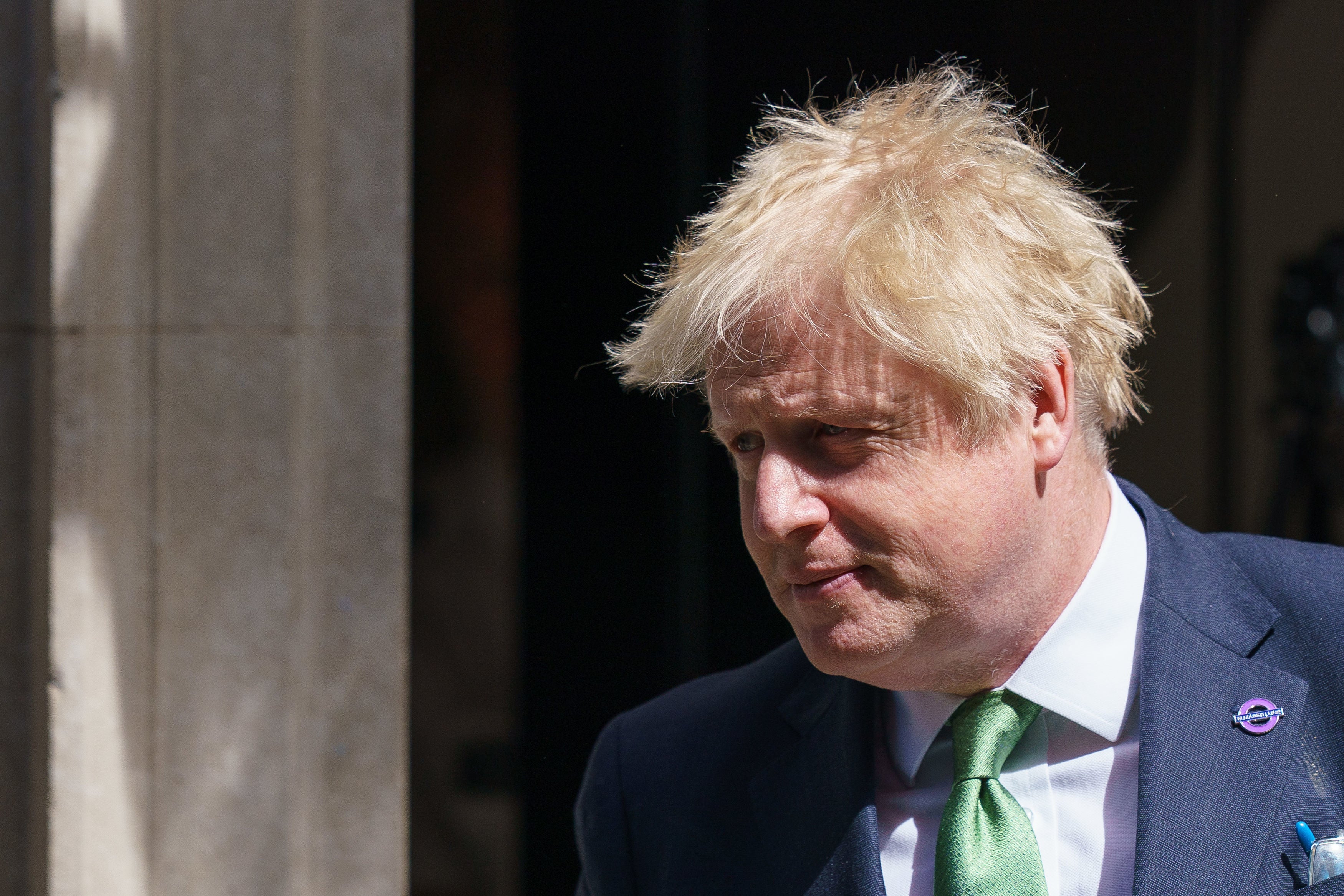Partygate is not quite over – the Sue Gray report could have a sting in its tail for Boris Johnson
The report might provide more evidence about what Johnson knew about the parties, and this could contradict what he told the Commons, writes Andrew Grice


Partygate is almost over... but not quite.
Boris Johnson’s allies are confident that the release of Sue Gray’s report next week will not trigger a vote of confidence in him by Conservative MPs. Yet there could be a dangerous sting in its tail: the report might provide more evidence about what Johnson knew – and when – about the parties, and this could contradict what he told the Commons.
If I were Johnson, I would be most worried about the final Partygate inquiry, by the Commons privileges committee, into whether he lied to parliament.
The old maxim that “deputy heads will roll” applies to Partygate. Or, in this case, junior heads. It angers many in Whitehall that junior civil servants appear to have received the bulk of the 126 fines handed out to 83 people, while those at the top, including Johnson, have not taken responsibility for the culture that allowed the parties to take place.
Johnson will claim he has already acted on the Gray report by shaking up the government machine – for example, by moving control over economic, domestic and security policy from the Cabinet Office to 10 Downing Street. Yet the culture stems from the top – and matters much more than shifting Whitehall furniture and nameplates around.
Now that we know Johnson will receive only one fine, the threat to his leadership has receded. Allies say that the end of the Metropolitan Police investigation allows him to “get on with the job”. Yet the job is dealing with the cost of living crisis, and his government is not getting on with it: there is a vacuum where the “plan” Rishi Sunak claims he has should be.
The chancellor’s speech to a CBI dinner this week went down badly. Afterwards, business figures told me bluntly that there is “no plan”. Some said they had now lost confidence in Sunak, as well as the prime minister; the latter had already alienated employers with his infamous “f*** business” remark and the rambling “Peppa Pig” speech he gave to the CBI conference last November.
It might have been just about acceptable to business to have a clown as PM (copyright Emmanuel Macron) if the chancellor were a trusted grown-up. But if the Treasury loses the trust of employers, it matters. Like workers, companies have been hit by last month’s rise in national insurance contributions. Unlike employees, businesses will not get a partial rebate in July through higher thresholds.
Some companies report that they are putting up their prices as a result, adding to inflationary pressures. “Sunak has shredded his reputation for the sake of £12bn of revenue,” one business figure said. Another added: “There is dismay and enormous frustration. We desperately need some clarity and certainty, but there is no strategy.” There is strong support from some sectors for a temporary cut in VAT to boost consumer demand and stave off a recession.
Company bosses rightly complain about “mixed messages”: Sunak dangled the carrot of tax relief to encourage much-needed business investment, yet corporation tax will rise from 19 to 25 per cent next April.
In contrast, business people are increasingly impressed by Keir Starmer, and by Rachel Reeves, the shadow chancellor. One banker said that, on going into a recent session with the pair, they were fully expecting to be underwhelmed, but instead emerged praising them. “Labour is definitely making headway,” said one figure.
The vacuum at the top of government allows ministers to state in media interviews their own thoughts on how to improve living standards; Liz Truss duly burnished her tax-cutting credentials this week. Ministers agree with jittery Tory backbenchers that “something must be done”, but can’t agree on what.
Tory MPs want income-tax cuts, and Sunak might bring forward the 1p cut in the basic rate he has already announced for 2024. But that would not offer much help to those at the bottom end of the income scale, who need it most. There is growing support for another £20-a-week uplift in universal credit, but Sunak appears to prefer to fiddle with work allowances. Some ministers back a temporary VAT cut, arguing that planned measures such as increasing the Warm Homes discount are not visible enough.
To keep up to speed with all the latest opinions and comment sign up to our free weekly Voices Dispatches newsletter by clicking here
In a role reversal, Johnson is reluctant to steal Labour’s plan for a windfall tax on oil and gas producers, while Sunak is warming to it. Labour figures tell me they will get the credit if the Tories act like political magpies and prove they have “no ideas of their own”, but I rather doubt it.
Drift is a dangerous state for any government. Ministers appear to be at the mercy of events rather than in the driving seat. The media can see it, and the public can sense it. In the current climate, it will make people less willing to give the government the benefit of the doubt and accept that the causes of sky-high inflation and energy prices are mainly global.
The end of the Met Police chapter of the Partygate saga will bring no respite for Johnson, because there will now be an even bigger media spotlight on the cost of living crisis.
Although the Partygate scandal should not be forgotten, the reality is that it will be in the rear-view mirror for many voters by the 2024 general election. The biggest threat to Johnson, and to the Tories if they stick with him, is that their woeful response to the economic crisis will not be.
Join our commenting forum
Join thought-provoking conversations, follow other Independent readers and see their replies
Comments
Bookmark popover
Removed from bookmarks